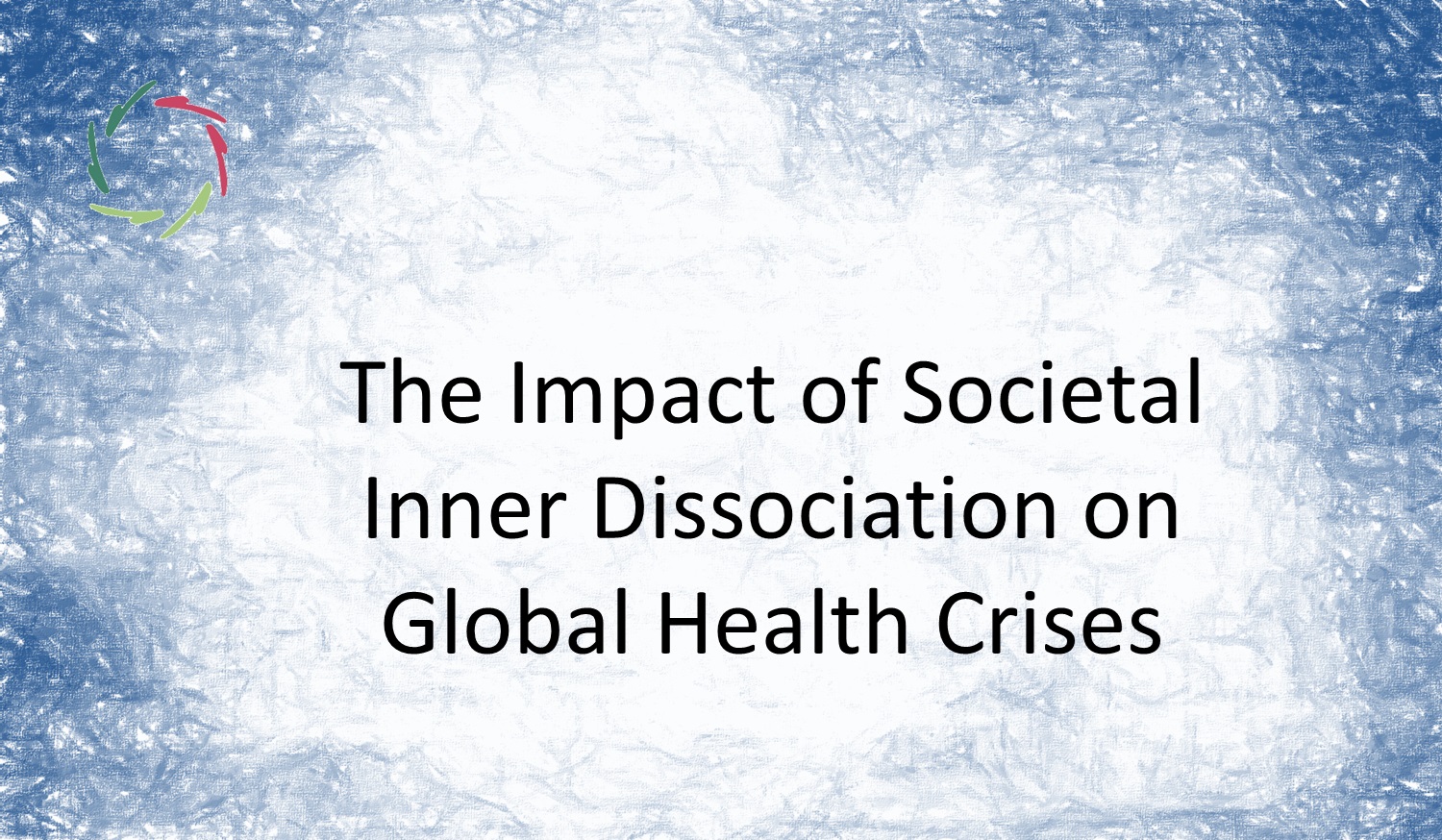The Impact of Societal Inner Dissociation on Global Health Crises

Global health crises, such as the COVID-19 pandemic, reveal the deep fissures in societal structures and the pervasive effects of Societal Inner Dissociation (SID).
By understanding the role of SID in these dynamics, we can better prepare for and respond to future global health challenges in ways that promote unity, trust, and resilience. This blog is part of the *SID* series. Please read the primary blog of this series for a basic understanding of Societal Inner Dissociation (SID).
SID and health crises
Societal Inner Dissociation (SID) plays a significant role in shaping public reactions to global health crises. The internal fragmentation experienced by individuals and societies can manifest in a range of responses that complicate efforts to manage and mitigate such crises.
One of the most common reactions to a global health crisis is denial, a direct result of SID. When faced with a threat as overwhelming as a pandemic, the dissociated mind may seek to minimize or deny the reality of the situation. This denial serves as a psychological defense mechanism, protecting individuals from the full emotional impact of the crisis but also leading to a lack of compliance with necessary public health measures.
Conspiracy theories often thrive in environments where SID is prevalent. The fragmentation within society leads to a breakdown in trust, not only in institutions but also in the information being disseminated. As a result, some individuals turn to alternative explanations that resonate with their dissociated state. These theories offer a sense of control or understanding in a world that feels increasingly chaotic and disconnected. Yet, they further erode public trust and hinder coordinated responses to the crisis.
SID can also drive resistance to public health measures. For individuals who are disconnected from their deeper selves and their communities, public health directives may be perceived as external impositions rather than collective efforts to safeguard well-being. This resistance is often rooted in a broader sense of alienation and mistrust, exacerbating the challenges faced by public health authorities in managing the crisis effectively.
Trust and mistrust in science
As individuals become more disconnected from their inner selves and from society at large, they may find it increasingly difficult to trust external authorities, including scientists and healthcare professionals. This mistrust is compounded by the proliferation of misinformation and the polarization of media ― all leading to poor public health outcomes.
In the absence of trust in established scientific institutions, pseudoscience and alternative therapies often gain popularity. These alternatives appeal to those who feel alienated by mainstream science, offering simple solutions to complex problems.
Polarization of public opinion
In a society affected by SID, media narratives often become polarized. Different media outlets may present the same health crisis in vastly different ways, depending on their political or ideological leanings. This creates an environment where the public is divided into opposing camps, each with its own version of reality. The lack of a unified narrative makes it difficult to mobilize a cohesive response to the crisis.
Different groups within society begin to live in separate realities. Attitudes toward issues like vaccination, mask-wearing, and social distancing become highly polarized. The lack of a shared understanding of the crisis leads to conflict and undermines efforts to implement effective public health measures.
The COVID-19 pandemic provided numerous examples of how SID can polarize public opinion. This polarization not only hindered the public health response but also deepened the societal divides that were already present, making it more challenging to address the crisis collectively.
Building resilience
One of the most effective ways to counteract the effects of SID during health crises is by promoting public health literacy. Public health campaigns should focus on clear, consistent communication that addresses the concerns and fears of the population.
Encouraging community involvement in public health initiatives, such as vaccination drives or health education programs, can foster a sense of shared purpose and responsibility. When individuals feel connected to their communities and understand the collective benefits of public health measures, they are more likely to comply with guidelines and support efforts to manage the crisis. Meanwhile, by demonstrating the integrity and reliability of scientific processes, health authorities can help bridge the trust gap created by SID and ensure better public cooperation in future crises.
To overcome the polarization of public opinion, it is essential to create a unified response to health crises. This involves coordinating efforts across different sectors of society, including government, media, and healthcare, to present a consistent and coherent message. By emphasizing common goals and the collective good, we can reduce the divisions that SID exacerbates and foster a more resilient and effective response to global health challenges.
In Short
Global health crises reveal the deep fissures within societies, often exacerbated by SID. To prepare for and respond effectively to future challenges, it is crucial to address the underlying dissociation that complicates public health efforts. By promoting unity, trust, and resilience, we can build a society that is better equipped to face global health crises with strength and solidarity.
Lisa is ready for all personal coaching ― of course, without manipulating anyone.


